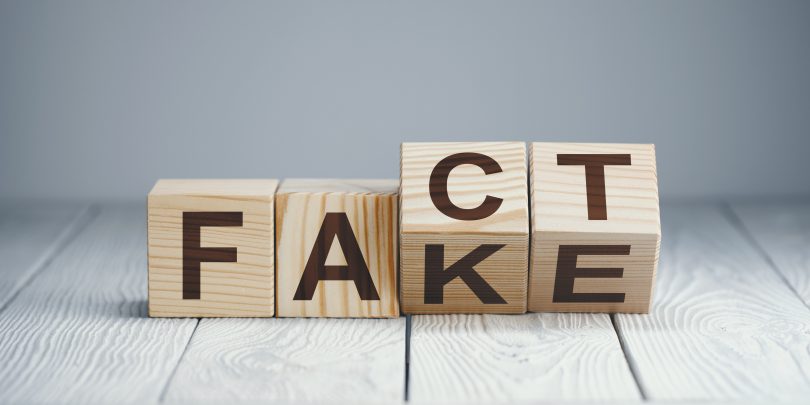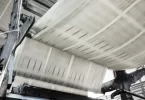Even before pro-Trump insurrectionists flooded the Capitol and well before politicians were spreading misinformation about a crippling global pandemic, the western world was seeing diminished trust in institutions.
Levels of trust in institutions is best summarised by UN Secretary-General Antonio Guterres, who in 2018, told the world that it had a bad case of “trust deficit disorder”.
Journalists and the mass media are the first points of call for the public as they look for reliable information.
Claims of election fraud peddled by ‘fake news’ organisations were catch-cries of President Trump’s final days in office.
These claims were repeatedly called out by fact checking units and media organisations, as they fought to inform the public of the former President’s dishonesty.
Australia’s views on honesty and ethics in the journalism profession rate similarly to our views on state and federal politicians. That is concerning.

Source: Roy Morgan findings on honesty and ethics in Australia’s news media.
Does the public broadcaster have a role to play in building trust?
Public broadcasters the SBS and the ABC have long been heralded as key information providers to the general Australian public, particularly in times of need.
Although mistakes can be made, as the ABC showed with inappropriate editing in its 101 Doll Squad news report which undermined public trust in the institution.
Conservative-leaning media organisations and influential thinkers latched on to rhetoric after the report, looking to divide the general public against the public broadcaster.
They’re not the only ones breeding mistrust.
Technology has allowed the rise of news and current affairs by the newcomers such as YouTuber FriendlyJordies, whose shock-jock tactics and political analysis have garnered a large audience.
Such work breeds distrust of leading media organisations, particularly the ABC, and is a constant thorn in many ethical journalists’ sides.
Tensions toward public broadcasters across Europe have resulted in intimidation and coercion by right-wing populist governments and in some places has seen a cut of budgetary independence.
The need for rapid, reliable information
Global citizens need reliable information, particular to prepare people for major disasters.
One of the main arguments for supporting the ABC is to ensure there are funds for disaster reporting.
Reliable communication during the so-called Black Summer saw rural communities rely heavily on institutions such as the ABC.
Of course, there are other ways that information can get out to communities, with the Bushfire and Natural Hazard Cooperative Research Centre suggesting a rapid and uncomplicated supply of information by AI and automation in disaster response would “minimise warning issuance delay and maximise the effectiveness of decision-making”.
Could the ‘mainstream media’ benefit from more trust in citizen journalism?
Public journalism, or citizen journalism, refers to the participation of the audience in the news or as the storyteller.
It can come in the form of live social media updates, regulated platforms or, simply and effectively, from things like TikTok videos.
Citizen journalism is on the rise in some countries, particularly throughout south-east Asia and parts of the US, where there is political protests and unrest.
Prominent TikToker and Burmese teenager @whoops.its.lilly has shown the power of citizen journalism to provide important information and updates during a time of crisis.
Academics researching the Black Lives Matter movement in the US found that protestors who recorded police-perpetrated violence had exposed the realities of discrimination and misconduct.
Of course, it must be acknowledged that a lack of formal accountability and issues around transparency plague the new form of journalism.
Deep-fakes, undue focus on advocacy journalism and the spread of misinformation are key issues that civic journalists need to constantly confront.
However, increased audience participation in journalism could be a step in the right direction for strengthening trust in the profession.
Ethical journalism in the mainstream
Accuracy in journalism is an all-important factor.
Discussions in news media academia have pointed journalists toward getting the basics right, first and foremost.
Relying on claims made by other news sources overseas will not cut the mustard as Australia embarks on intense trade tensions with it’s largest two-way trading partner, China.
As Australia’s position in the world develops, changes in public communication via the internet must be met with solid, accountable journalism
Is objective reporting important in the era of polarisation?
Considering the polarisation and misinformation online, the news media’s role in providing facts is crucial in an unpredictable decade, full of a more chaotic political and cultural landscape.
Journalists and the news media in Australia find themselves targets of attacks, both online and from politicians.
More needs to be done to both acknowledge the wider ‘trust deficits’ and journalists’ important role in providing crucial information to the public.
[Featured image: Taken from ShutterStock by Yeti Studios]








Hi Emile, great article. You’re definitely right in saying that the role of journalism is as crucial as ever in order to combat polarization and misinformation. Fact-checking and transparency in journalism, as you pointed out, lends credibility to journalists and ultimately stands to facilitate trust with their audiences. This in turn, will hopefully steer audiences away from the unchecked news circulating on the media towards ethically responsible news platforms. Trust in these types of news platforms is key to lessening the consumption of misinformation and the level of polarization currently plaguing our society.
Sorry, didn’t mean to press send on that comment. I also wanted to say that the Economist article you linked was super interesting and very alarming to read that public broadcasters are facing so much intimidation from governments, to the point many are becoming mouthpieces of the powerful. The thought of this happening to the ABC or SBS is terrifying. Thanks for sharing!